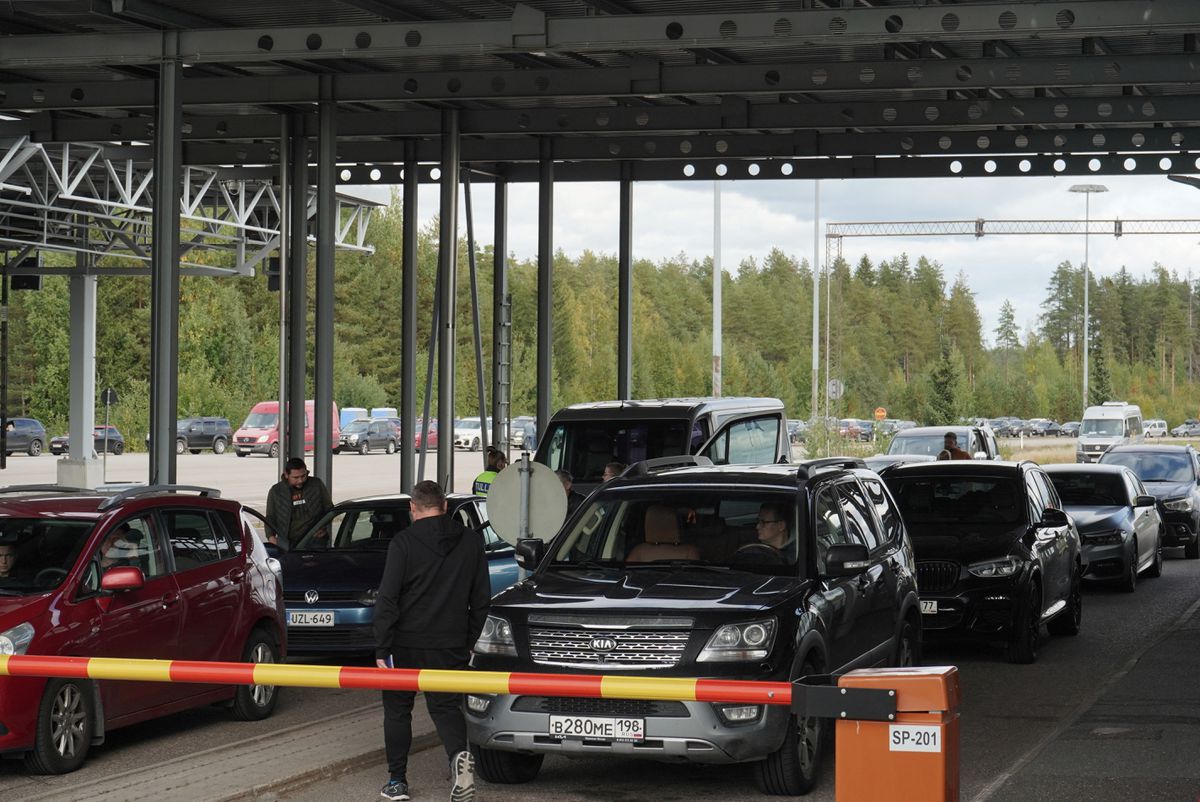MOSCOW (Parliament Politics Magazine) – To avoid being drafted into the military for the war in Ukraine, Russian men are attempting to get out of the country.
Following the announcement of a partial military mobilisation by President Vladimir Putin on Wednesday, which could mean 300,000 people summoned to fight, lines have been forming at border crossings.
The Kremlin said that the Reports of men of fighting age fleeing were overstated.
However, lines of vehicles running for miles, including men attempting to run away from the war, have formed along the border with Georgia.
Some people moving into the neighbouring country have dodged the traffic jams and a rule prohibiting crossings on foot by using bicycles.
Among these people, a man, who wished to remain unnamed, told Nina Akhmeteli of the BBC that he had been waiting since 9:00 local time (05:00 GMT), Thursday and that he had finally crossed over by the end of evening.
Another man said he had been waiting for about 12 hours and stated that partial mobilisation was the reason he was leaving Russia to finish his studies.
One of the few neighbouring counties that Russians can go to without application of the visa is Georgia. Visas are necessary to go to Finland, which shares a border of 1,300 kilometres (800 miles) with Russia. Finland also reported a spike in traffic throughout the night, but said it was still controllable.
After the announcement of the military call-up, ticket prices for other cities that can be reached by plane, including Istanbul, Belgrade, or Dubai, skyrocketed. Tickets to some of these places were sold out completely. The price of remaining flights to non-visa areas can possibly run into the thousands of euros, Turkish media reported also on a considerable rise in sales of one-way tickets.
On Thursday, Germany’s interior minister gave the signal that Russians who were trying to avoid the draft would be welcomed to her country.
Deserters threatened by extreme repression, according to Nancy Faeser, would be protected after security checks on an individual basis. Taking a contrasting stance, the Czech Republic, Estonia, Latvia and Lithuania refused to give asylum to Russian refugees.
On Tuesday, the call-up provoked demonstrations in significant Russian cities, including Moscow and St. Petersburg, leading to a reported 1,300 arrests.
Additionally, there were rumours coming out of Russia that some of the protesters who were detained received draft paperwork while they were being held at police stations. When questioned about the reports, Kremlin spokesman Dmitry Peskov stated that doing so was not illegal.
During his nightly address on Thursday, Ukrainian President Volodymyr Zelensky urged Russians to reject the mobilisation.
He said, in reference to the wartime deaths of Russians: “Want more? No? Then protest. Fight back. Run away. Or surrender to Ukrainian captivity.”
The response to Russia’s military mobilisation has been exceptionally intense.
Russian officials said that the call-up won’t amount to widespread conscription because only those people who have already served their military obligations would be included.
There is, however, rumour within Russia that the military mobilisation may be greater than what is officially reported.






